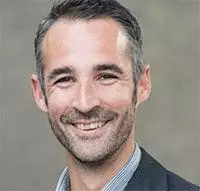Guessing the weight of an ox: an open process to reviewing the rules for fundraising
In 2004 a book called The Wisdom of Crowds, by James Surowiecki was published. The premise running through it is that if you look at the averages across a number of individual viewpoints/guesses, you will tend to get pretty close to the ‘right’ answer.
Guessing the weight of an ox is an anecdote where at a county fair the averages of the crowd’s guesses about the ox’s weight was more accurate than most of the individual guesses on their own.
Ok, so there probably isn’t a direct link between the weight of cattle and fundraising standards (although I’m sure there’s a great pun in there somewhere), but I think the principle does serve as a useful reminder that when thinking about or reviewing an area: the aim should be for a broad conversation rather than a narrow one, listening and engaging with a range of different voices and views (from both inside the sector and out) that includes both the expert practitioner and the voice of the donor and the public.
It may be that some fundraisers feel a little uneasy or nervous about future change now that the Code of Fundraising Practice is set by the Fundraising Regulator and certainly there are some common questions around:
- What standards might be reviewed?
- What would that mean for our work and future campaigns?
- How quickly will things move?
As an observer on the Fundraising Regulator’s Standards Committee, I have been reassured with the considered and thoughtful approach that’s being set out to review the Code of Fundraising Practice.
Not regulation by opinion poll
Consultation and engagement were the key watchwords I took away from the first meeting. Of course, a review of parts of the Code will take place, and when it does take place the commitment is there for it to be an open and consultative process. Should that involve seeking and listening to the public’s view (or range of views that you get from the public)? Yes, absolutely. That doesn’t mean that we get regulation by opinion poll – but that regulatory standards are set which have been informed by the views and experience of the public in mind, alongside the expertise and views of fundraisers and others too.
Advertisement
No monopoly on ideas about what is good practice
It also means recognising that no one organisation or individual has a monopoly on ideas about what constitutes good practice, (although of course the Fundraising Regulator is the organisation that sets the rules) but that a range of contributions and ideas should be welcomed in to the mix.
Recently NCVO released recommendations on consent and direct marketing practice. It’s a legally complicated and pretty tricky area – and while I don’t necessarily agree with all of the recommendations as they stand, I do think it’s right for individual organisations to be discussing some of the areas that the report raises, and that it will provide a useful contribution that is considered as part of a future review of the Code. Similarly, the Commission on the Donor Experience, Rogare, and others are all adding to a wealth of shared experience and insight.
Certainly the IoF will be working on this, as we always have been. Since starting 30 odd years ago with a group of fundraisers wanting to set professional standards for the sector, we are proud to have set the Code of Fundraising Practice in the past, and will continue – through our Standards Advisory Board – to work with our members and across the sector to develop and put forward our views on potential changes to the Code and work with the Regulator on guidance and good practice.
People are talking about fundraising, are engaged with the debate, are thinking about what good practice means, about what rules should be set, about how to embed values throughout charities across the sector. Three years ago we would have probably been bemoaning the lack of attention.
Now that it’s here we should welcome and embrace it.
Daniel Fluskey, Head of Policy and Research, Institute of Fundraising




